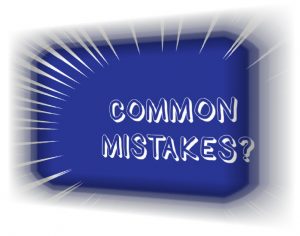Experts predict that 2021 will be a year where M&A activity will increase, particularly with privately owned companies and family businesses.
This increase is expected to be fueled by business owners who are looking to monetize their businesses for retirement. One of the key questions they ask Is “What is my business worth”?
COMMON VALUATION METHODS …
Depending on the size of the business the most common method is to value them based on a multiple of earnings. There are several ways to look at multiples when valuing a business. And there are also mistakes to avoid in the process of determining what a business is worth.
 When we examine a multiple of earnings, which earnings number do we use? For a small business, it is common to use a method called Sellers Discretionary Earnings (SDE).
When we examine a multiple of earnings, which earnings number do we use? For a small business, it is common to use a method called Sellers Discretionary Earnings (SDE).
For larger businesses, most buyers use Earnings Before Interest, Taxes, Depreciation and Amortization (EBITDA).
For purposes of differentiating both methods, generally the SDE method is used for earnings of $1,000,000 or less.
The SDE method is an effort to identify all owner’s benefits available to the new owner of the business. A similar effort with a larger business is Adjusted EBITDA. Adjusted EBITDA adds back expenses such as owner’s compensation above market, higher rent paid to a facility owned by the business owner, or non-recurring expenses. There are many other adjustments that should be made depending on the circumstances, prior to arriving at the value of the business.
IS THE BUSINESS DESIRABLE?
 Once you have an idea of the approach to valuation and the multiples used in your industry, it’s time to look at the points that make your business most desirable to a purchaser.
Once you have an idea of the approach to valuation and the multiples used in your industry, it’s time to look at the points that make your business most desirable to a purchaser.
Desirability factors such as a consistent history of growth and profitability, a broad and diverse customer base, multi-year contracts with recurring revenue and proprietary products or technology all contribute to adding to value at the higher end of the multiple range.
SOME COMMON MISTAKES …
And yet, even with all of the data available, business owners make drastic mistakes every day when selling their businesses. Some of the common errors made in a business sale are:
1. FAILING TO PLAN: Failing to adequately plan in advance for the sale of a business may significantly impact the valuation. The owner succeeding you needs to be set up for success. This means running the business as if you are going to own it forever and not giving a prospective purchaser the feeling that it’s a quick “I’ve had enough” decision.
 2. THE BEST PROMOTER IS: Remember, in the end, you are the best promoter for your business. While a broker or an investment bank may help identify potential purchasers, you are the individual that is in the best position to explain why your business has the unique customer base or proprietary products or technology that will drive the value of the sale.
2. THE BEST PROMOTER IS: Remember, in the end, you are the best promoter for your business. While a broker or an investment bank may help identify potential purchasers, you are the individual that is in the best position to explain why your business has the unique customer base or proprietary products or technology that will drive the value of the sale.
3. FULLY UNDERSTAND WHAT’S INVOLVED: You need to make sure that you thoroughly understand what is involved in selling a business. The standard process begins with a person or entity that approaches an owner and is interested in purchasing the business. That is typically followed by a confidentiality agreement which leads to informal due diligence to determine the buyer’s level of interest. If the prospective buyer is interested, this usually leads to a letter of intent (LOI). The LOI summarizes the terms of the proposed deal and will include such terms as the purchase price, method of payment, deadlines, exclusivity, and how the business will continue to be run during the process. You will want your attorney and/or advisor to review the LOI carefully to ensure you best interests are represented. Most LOI’s, are non-binding, so it’s important to make sure it does not represent a binding contract without the ability to renegotiate as the process develops.
 4. CHOOSE WISELY, NOT QUICKLY: There are business brokers for smaller businesses and investment banks for larger ones. Who you get to assist you in the sale is an incredibly important decision. Frequently, inexperienced owners go with the first broker or investment bank they meet just to get the process started. Using the wrong group could delay a sale by pricing a business too high or worse, they could be looking for a fast commission by pricing it too low. Knowing both the proper range of valuation and having confidence in your representative is vital.
4. CHOOSE WISELY, NOT QUICKLY: There are business brokers for smaller businesses and investment banks for larger ones. Who you get to assist you in the sale is an incredibly important decision. Frequently, inexperienced owners go with the first broker or investment bank they meet just to get the process started. Using the wrong group could delay a sale by pricing a business too high or worse, they could be looking for a fast commission by pricing it too low. Knowing both the proper range of valuation and having confidence in your representative is vital.
WHAT CAN GO WRONG?
As an example of what can happen if you have the wrong advisors or worse, no advisors, Revitalization Partners is serving as a court appointed receiver for a company that was sold by the long-term owners to two employees. The sale was done as a stock sale and financed by the owners as an unsecured note. In addition, the former owners guaranteed a bank loan and several credit cards on behalf of the company.
 As the new owners lacked sufficient business experience and the company was impacted by the pandemic, the company ended up in receivership. The owners became unsecured creditors and were also held liable by the banks and credit card companies for their personal guarantees.
As the new owners lacked sufficient business experience and the company was impacted by the pandemic, the company ended up in receivership. The owners became unsecured creditors and were also held liable by the banks and credit card companies for their personal guarantees.
In another case, several owners of a small technology company ended up in a lawsuit amongst themselves. During the process, the owners attempted to sell the company by using an investment bank. Despite the fact that the investment bank assured the judge in the lawsuit that they could sell the company, after a year of effort the company remained unsold due to pricing and contract issues and the company was eventually placed in receivership for a sale.
GET EXPERIENCED HELP …
 There are many aspects to consider when contemplating either buying or selling a business.
There are many aspects to consider when contemplating either buying or selling a business.
It’s really important to have an experienced independent advisor to help business owners ensure the process is professionally managed and their interests are represented.
Both sellers and buyers with no frame of reference or prior experience are frequently misled, being told what they want to hear rather than the facts.
Some brokers or investment banks make statements supported by a lack of facts.
Be certain that your advisor works for you, not a commission on the sale. Be careful and smart!
Revitalization Partners specializes in improving the operational and financial results of companies and providing hands-on expertise in virtually every circumstance, with a focus on small and mid-market organizations. Whether your requirement is Interim Management, a Business Assessment, Revitalization and Reengineering or Receivership/Bankruptcy Support, we focus on giving you the best resolution in the fastest time with the highest possible return.




